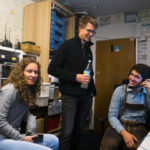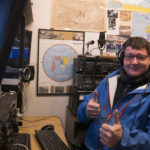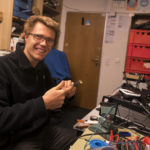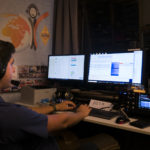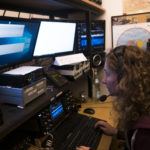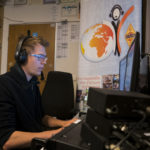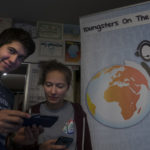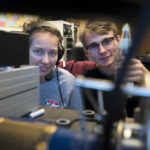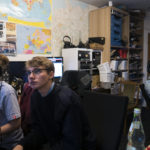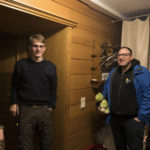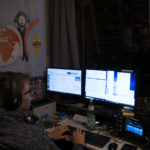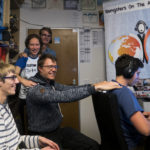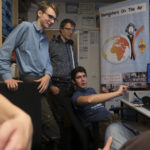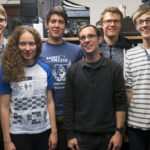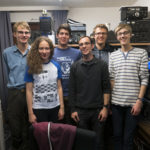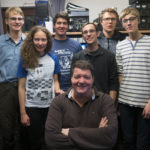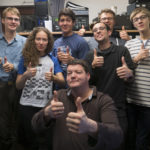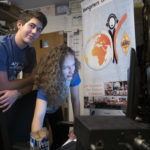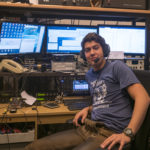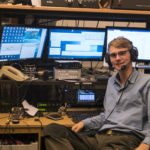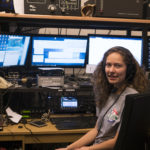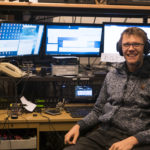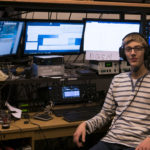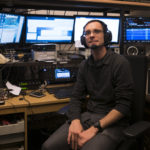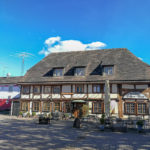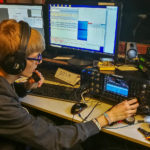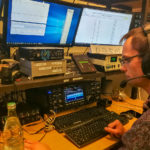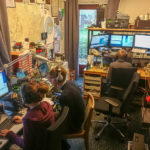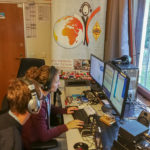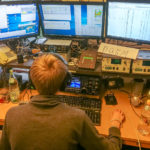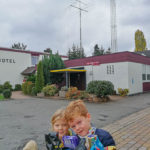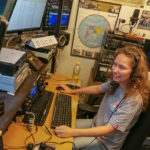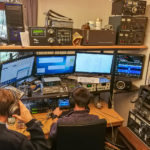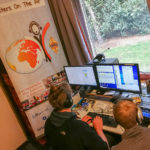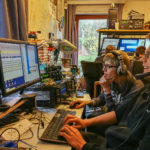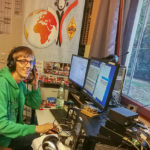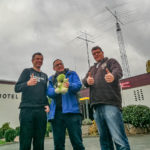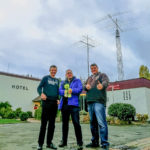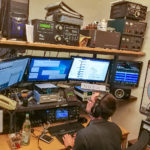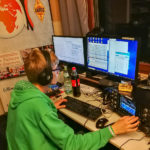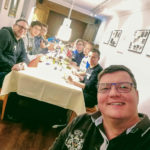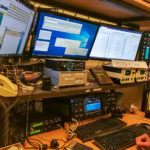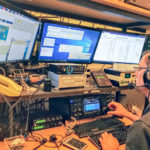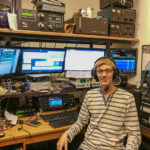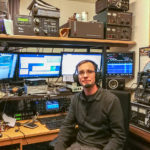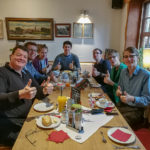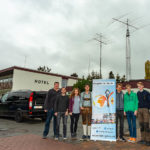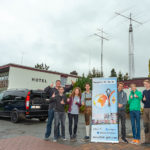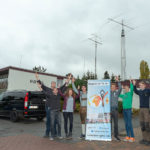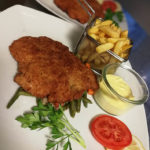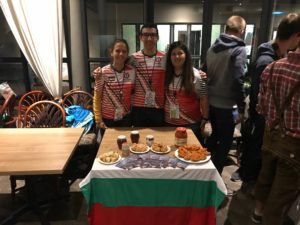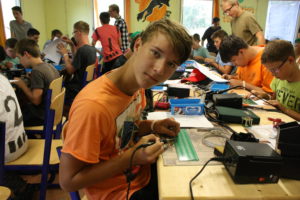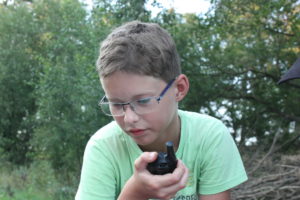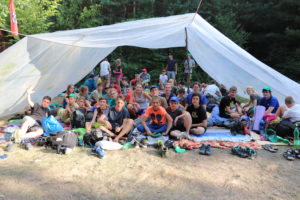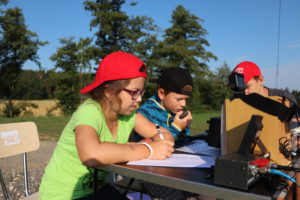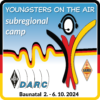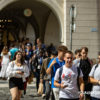After seeing posts about the YCP at DM9EE I immediately applied, eager to be able to take part in
the CQWW SSB contest from a big contest station. My contest experience was limited, having only
participated at smaller stations and once at 9A1A as part of the YCP program. I was eager to gain
experience and learn more about contest techniques and strategies.
Six youngsters were selected to go to DM9EE for the contest, 4 of them coming from various
regions of Germany, one from Sweden and myself from Austria. It was an interesting combination
of people, with different skill levels, some having only operated QRP stations whilst others had
been to large contest stations before.
On Friday we arrived at the DX-Hotel in Holzminden in the north of Germany owned by Carsten
Dauer, DM9EE. The DX-Hotel (see dm9ee.de for more information) is a normal hotel, only that in
the garden there are two high masts with yagi antennas on top and a 4 square for the 80 meter
band. The station itself consisted of two IC-7851 transceivers with an OM-Power and an ACOM
amplifier. One thing some of us had never seen before was the micro ham system which connects
all parts of the station. The functionality it provided was impressive, however before we could get
started some tweaking was required so we got right to work to make sure everything was working
flawlessly. Thankfully we arrived early before contest begin so we had enough time. At the last
minute we had to solder a new control cable for one of the amplifiers as we changed the set up a
little to optimise the station.
The antenna systems were great, an opti beam ob-17-4 (3 element on 40m, 4ele on 20m, 4ele on
15m and 6ele on 10m), a 4 square for 80 meters and an inverted L wire antenna for 160 meters. All
of this concealed in the garden of the hotel. A big thank you to Carsten, DM9EE who not only
provided the station and his experience but also housed us in his luxurious hotel. I am sure no
other contest team lived and ate as well as we did during the contest.
We operated using the call DQ5M, a special youth contesting callsign. During the contest we
changed operators approximately every 3 hours, however sometimes we operated for 4 or 5 hours
and other times we changed more frequently. There was no tight schedule, if an operator wanted
to be replaced, one of us would jump at the opportunity to operate again. The contest itself was
very interesting, we had never seen the bands so extremely full. It was an interesting experience
and a challenge to call on a frequency when you can hear and even understand the station above
and below you. We quickly noticed that we were able to achieve better rates using search and
pounce, especially for multipliers. Towards the end of the contest we had to resort to calling on a
frequency as we had already worked all stations which we were able to hear on the band, the band
map became very empty. Occasionally a new multiplier would pop up in he cluster and we would
immediately try to work it before resuming to calling.
The social aspect of this event can not be overlooked, new friendships were made and we all
share an enthusiasm for youth work and will work together to spread our hobby among young
people in the future. I have noticed that one of the key factors which makes it difficult to get new
youngsters into the hobby is that there is a lack of other people their age who they can practice the
hobby with, then they quickly loose interest and become inactive. Small events like the YCP events
are perfect to change this. Even though there are quite a few youngsters in Austria, they do not
know each other, they have to be connected at events such as this one. Furthermore a weekend
activity together is the perfect opportunity to get to know each other, the team which met at DQ5M
will stay connected and work together in youth work. Amateur radio needs more events like these
to grow and to pass the hobby on to the next generation.
73 de Monty, OE3VVU
DQ5M YCP team
- cof
- sdr
- sdr
- sdr
- cof
- cof
- sdr
- cof
- sdr
- sdr
- sdr
- cof
- sdr
- sdr
- sdr
- sdr
- dav
- sdr
- sdr
- dav
- dav
- sdr
- edf

